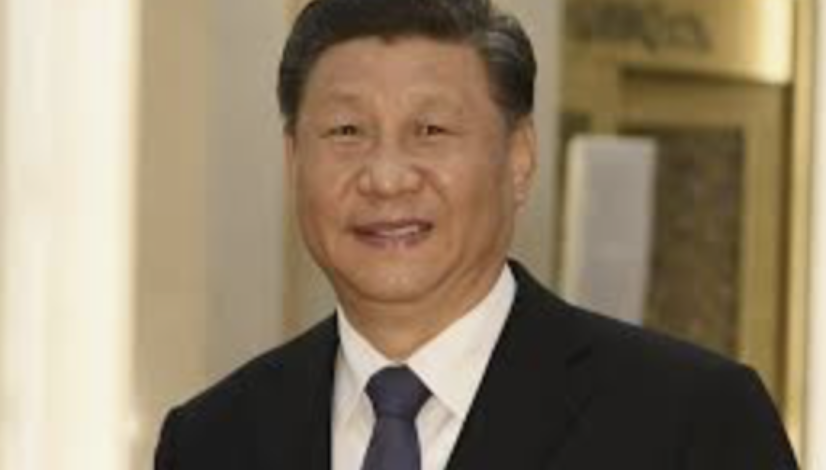Trump’s biggest legacy is risking reelection to expose corrupt China

How bad is China? So bad that they are “disappearing” those telling the truth about the coronavirus. So bad that their leader, President Xi Jinping, apparently knew about the disease weeks before he fessed up to the public, possibly delaying the creation of treatments and jeopardizing millions.
So bad that President Trump chose to risk his own reelection by confronting Beijing.
Donald Trump’s most enduring legacy may not be a more secure southern border or lower taxes. Those accomplishments will be thrown over in a jiffy once Democrats retake the White House, as they one day will.
No, history will best remember Donald Trump as the president who forced the world to acknowledge that China’s government is a criminal enterprise.
As the coronavirus rolls on, sickening and killing thousands, we are reminded anew of the threat posed by China’s corruption. It has become clear that Beijing lied about the extent and the contagious nature of the disease, allowing hundreds of thousands of travelers to spread the virus well after it had been diagnosed.
More recently, it has emerged that citizen journalists bold enough to expose horrifying scenes of dead bodies stacked in vans or desperate lines of patients seeking treatment have vanished.
Governments trying to protect their citizens are attempting to sort Chinese fact from fiction. Thankfully, the blinders are off, in part because of Trump’s willingness to call out Beijing’s duplicity on trade and other activities, including their breathtaking theft of America’s creative output.
He has confronted not only China’s unfair trade practices, but also their cyber espionage, their infiltration of American research universities, their multiple breaches of international agreements (WTO, North Korea sanctions etc.) and so much more.
Trump has revealed China’s profound dishonesty, which other world leaders, hungry to access China’s huge market, have been reluctant to do. His campaign has resulted in a marked change in Americans’ attitudes towards Beijing. Last year, according to Pew research, some 60 percent of the country had an unfavorable view of China, up from roughly 38 percent a decade ago, and 47 percent in 2018.
This is no small feat. As the president took on China, he risked his most compelling reelection advantage: a strong economy. For the past three years, he came under widespread attack for placing tariffs on Chinese imports, with Corporate America and the media warning that the trade war would hurt consumers and throw the United States into recession.
Indeed, the president’s efforts to right the wrongs of decades have caused some slowing in our growth, especially in manufacturing. This has been expensive, not only to the country, but also to the president.
Immediately following his election in 2016, the United States enjoyed a surge in optimism – among consumers and business leaders. Buoyed by lower taxes and less onerous regulation, CEOs hiked spending and hiring. Business investment increased at a rate not seen in years, leading overall GDP growth to exceed 3 percent by the middle of 2018.
Since then, the rate of economic expansion slowed, thanks to unwarranted rate hikes from the Federal Reserve, and to a slowdown in business spending. CEOs grew nervous about the impact of the trade war and cut back.
Notwithstanding the damage that the trade challenge inflicted on the economy, Trump and his negotiators persevered, finally inking a “phase one” deal late last year. The agreement contains new protections of patents and trade secrets and prohibits forced technology transfers, with clear enforcement mechanisms. The deal addressed many of China’s misdeeds; it was a victory.
It was perhaps Trump’s most consequential victory to date. With the emergence of the Mao-like President Xi, the growth of China’s economy, its giant military spending, its increasing aggression and its vast ambition, outlined in its Belt and Road initiative, the United States had, eventually, to set limits on Beijing.
It is not as though Trump had no choice. His predecessors simply ignored China’s transgressions; he chose not to. China did not suddenly become a rogue state; it has been lying, stealing us blind and attacking us for decades.
After all, it was well known that China orchestrated the hack of the Office of Personnel Management in 2014, the single biggest theft of personal data in our country’s history. Information on millions of Americans was siphoned off, including many with high-level security clearances.
In that same year, a grand jury in Pennsylvania indicted five Chinese members of a military-linked cybercrime unit for stealing trade secrets from Westinghouse and other American companies.
In 2013, Dennis Blair and Jon Huntsman were charged with reviewing widespread stealing of American intellectual property; their report cited China as the principal bad actor and estimated the annual cost of IP theft at more than $300 billion annually.
In a 2017 update, the two noted that, notwithstanding ongoing losses of some $225 billion to $600 billion each year, “the executive branch took a limited number of actions” and American businesses did little more than play defense.
Why were U.S. leaders so ready to ignore China’s misdeeds? As globalization spread, Big Business depended on supply chains in China to lower costs and compete with international rivals. Also, President Barack Obama desperately wanted their participation in the Paris Climate Accord. Even though Beijing’s promises were practically meaningless, Obama could hail the agreement as a diplomatic breakthrough, claims that were magnified by a compliant media.
Our business and political leaders were happy to deal with the devil.
Today, as the coronavirus wreaks havoc on businesses overly dependent on Chinese supply chains, the cost of that naivete is becoming clear. Companies are scrambling to diversify their manufacturing sources, moving operations to Vietnam, Thailand and elsewhere. Some made the move in response to Trump’s trade war; some are just now pursuing alternative sources to escape the virus-linked lockdown of Chinese factories.
This is a welcome turn of events and will have long-lasting repercussions, including slowing China’s ascent. The world can thank President Trump.
Published on Foxnews.com




